Yes, Guinea Pigs Have a Specific Diet. Luckily, It Won't Cost You Too Much
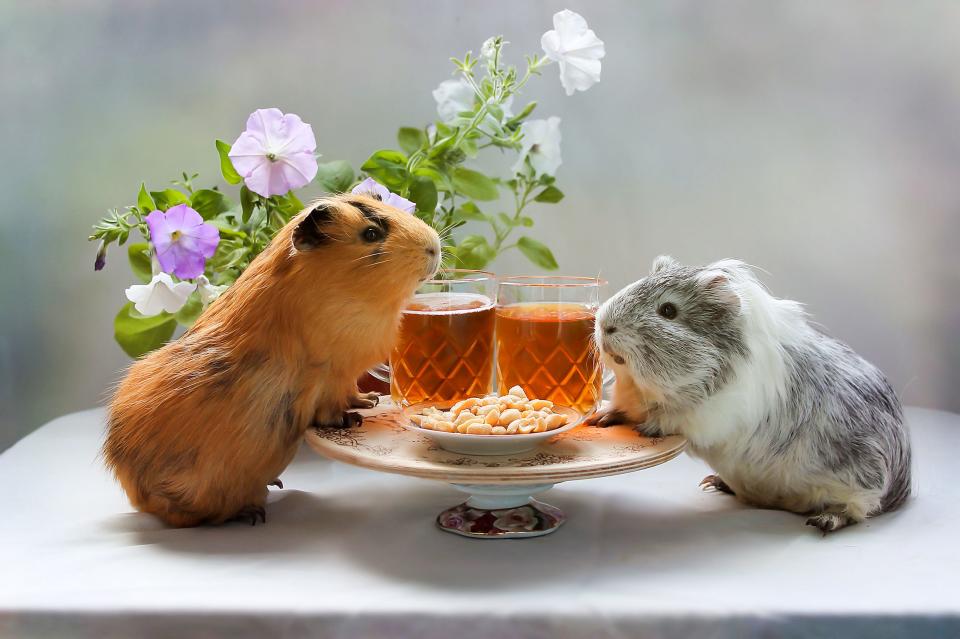
Yes, Guinea Pigs Have a Specific Diet. Luckily, It Won't Cost You Too Much
Taking care of a guinea pig isn’t as easy as one might think. Not only do you need to buy them a cage that's big enough for them to move, but you also have to take them to the vet for routine checkups and provide them with the proper nutrition.
One thing to note is that guinea pigs can be very particular about their diet. According to VCA Hospitals, most guinea pigs develop food preferences early in life and any sudden change could result in a refusal to eat — even changing their food plates could confuse them. If you’ve recently adopted a guinea pig, be sure to ask what their current diet is, and make slow, gradual changes to avoid any issues.
According to Petco, because guinea pigs are herbivores, their diet should consist of hay, pellets, fresh vegetables, and fresh fruit. That being said, it is important to make sure that whatever food you are giving them is high in vitamin C because guinea pigs are naturally deficient of it. If a guinea pig doesn't get enough vitamin C in their diet, they could be prone to developing infections.
If you recently brought a little guinea pig home, or are thinking about adopting one, here’s everything you need to know about what guinea pigs eat.
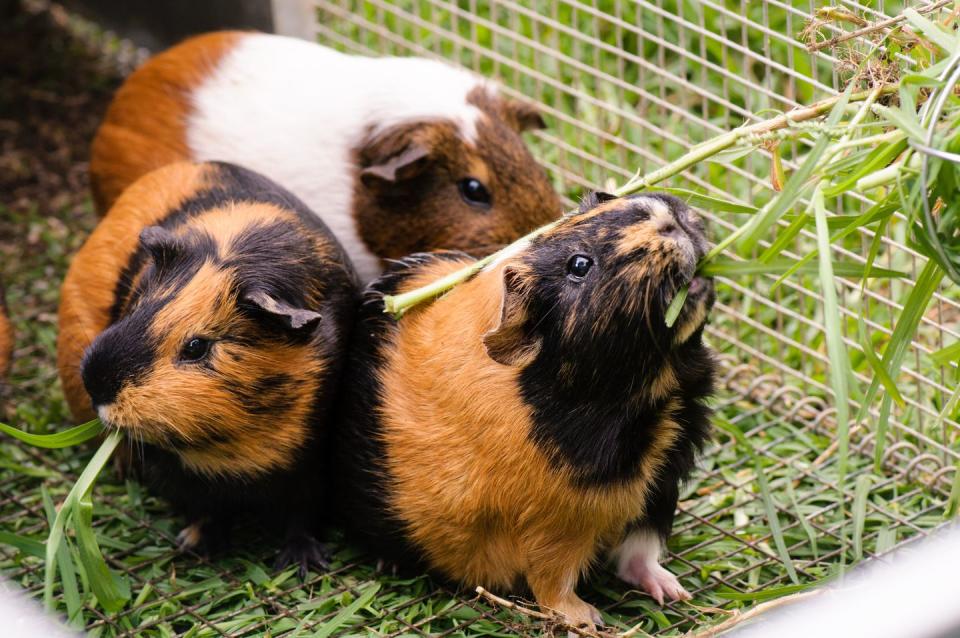
Hay
Hay is very important in a guinea pig's diet because it provides them with the required fiber for proper digestion and it helps wear down their teeth, which grow continuously. Because of this, hay should be available to them at all times and replaced daily.
According to the Humane Society of the United States, most guinea pigs prefer to eat Timothy hay.
What you’ll need: Timothy hay ($16, Petco.com)
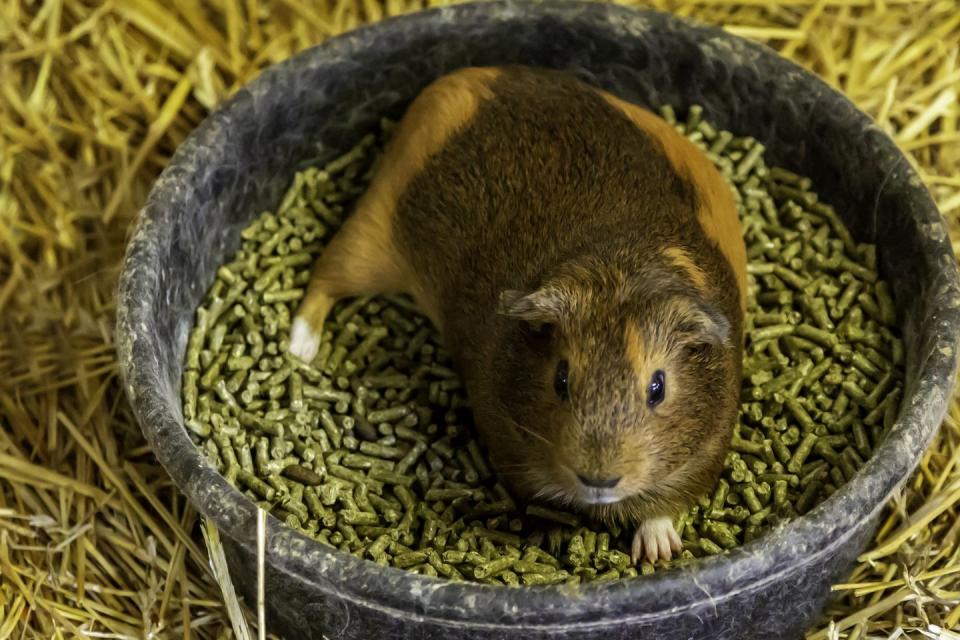
Pellets
When buying pellets, pick ones specifically formulated for guinea pigs because they contain the proper dosage of vitamin C and nutrients they need.
If your guinea pig hasn’t eaten the pellets in an hour, remove their bowl, as guinea pigs will overeat if given the opportunity. Because of this, you should only feed them pellets in the morning and in the evening.
What you’ll need: Guinea Pig Food ($7, Petco.com)
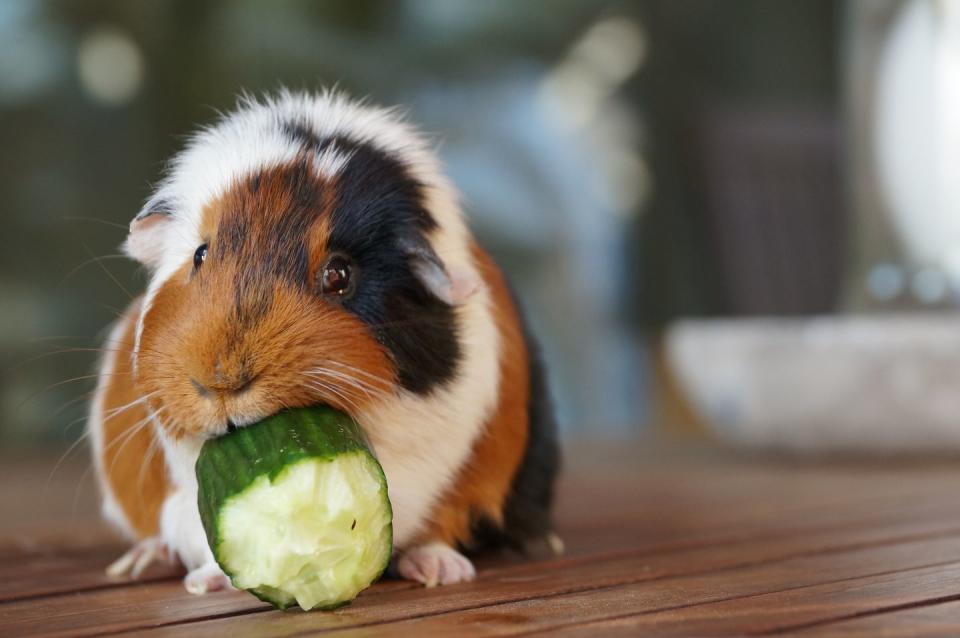
Fresh Vegetables
According to the Humane Society of the United States, you should feed them one cup of vegetables a day. Make sure to pick vegetables that are high in nutrients and free from pesticides. Guinea pigs also like their veggies to be at room temperature.
Vegetables your guinea pig will love include: Romaine lettuce, carrot tops, peas, cucumbers, broccoli spears, spinach, artichokes, and kale.
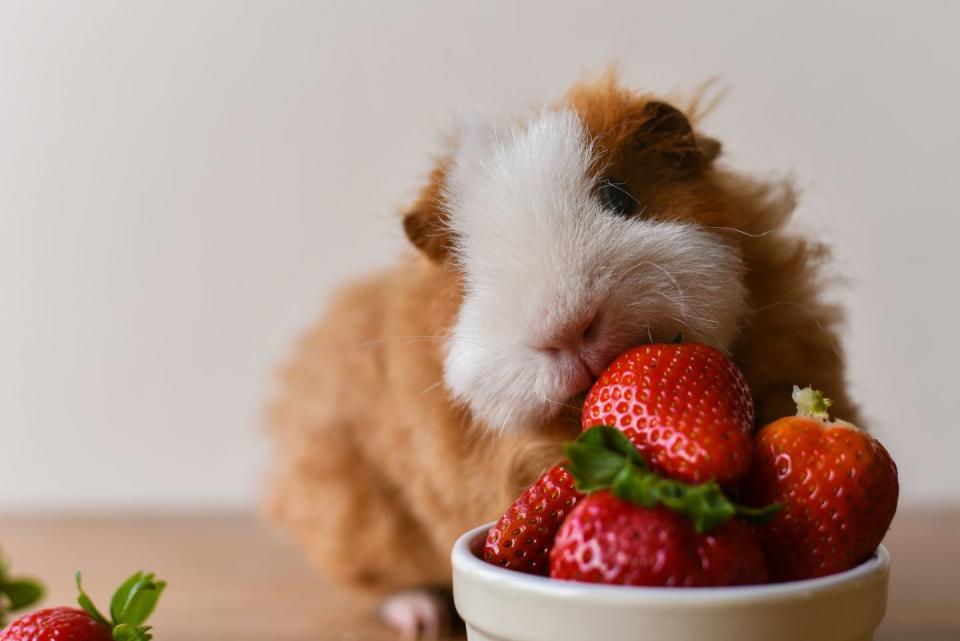
Fresh Fruit
According to Petco, fruit should make up less than 10% of your guinea pig’s daily food intake. The reason being that fruit is high in sugar and guinea pigs could easily develop diabetes. Aim to serve them small, bite-sized portions several times a week.
If your guinea pig hasn’t touched his or her fresh veggies and fruit in 24 hours, you should remove and replace them.
Fruits your guinea pig will love include: Oranges, apples, pears, strawberries, blueberries, kiwi, papayas, and peaches.

Stay Away From Treats
When shopping for your guinea pig, you might be tempted to buy them treats. Try to resist the urge because treats are usually high in sugar.
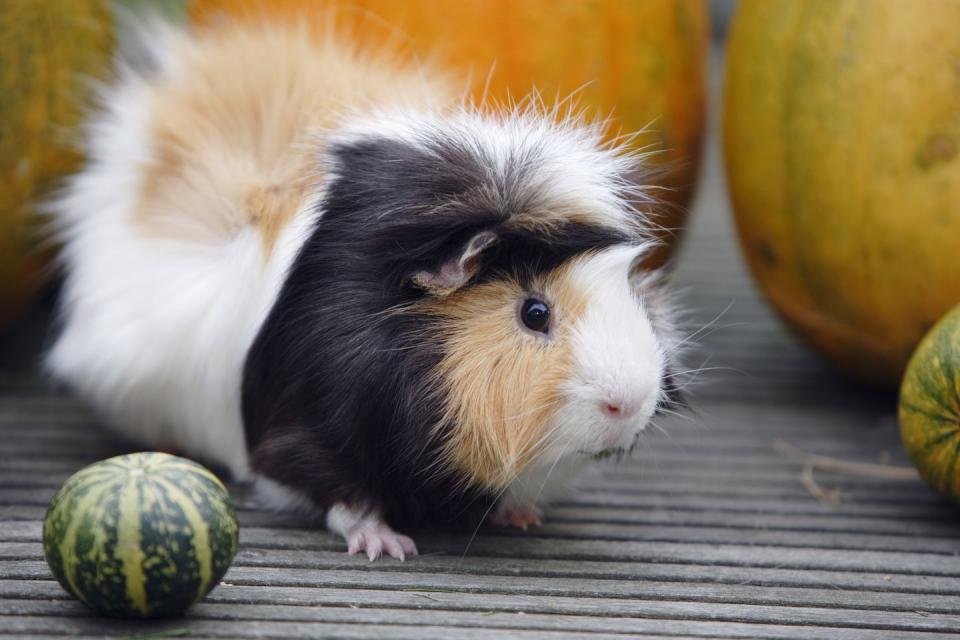
Foods To Avoid
Like other animals, there are certain foods that guinea pigs should stay away from. They could be poisonous, too high in fat or sugar, cause gas, or be a choking hazard. You should also keep them away from any plants and flowers because many are considered toxic.
Foods your guinea pig should stay away from include: Chocolate, anything with caffeine, onions, garlic, mushrooms, iceberg lettuce, avocados, nuts, potatoes, seeds, corn kernels, peanut butter, rhubarb, cabbage, bok choy, dairy products, bread, and meat.
If you're not really sure what to feed your guinea pig or what foods to avoid, talk to an exotic pets’ veterinarian.
Your guinea pigs need their daily dose of veggies too.